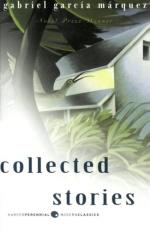|
This section contains 548 words (approx. 2 pages at 400 words per page) |

|
Hispanic Avant-garde
The years following World War II saw an exciting and remarkable output of literature by Hispanic writers, principally in Latin America. Because they departed from previous styles like literary modernism, creating new and innovative genres such as magic realism, the writers of this period became known as the Hispanic avant-garde, a French term that means artistically advanced and daring. García Márquez was one of the most prominent of these writers, but he was preceded by the Argentine author Jorge Luis Borges, whom García Márquez admired greatly and frequently acknowledged as a major influence on his own work. Rebelling against the symbolist tradition of literary modernism, Borges helped to create a new style of writing that referred not to elements of the real world, but instead to other texts, and he resisted a linear view of time and space...
|
This section contains 548 words (approx. 2 pages at 400 words per page) |

|




